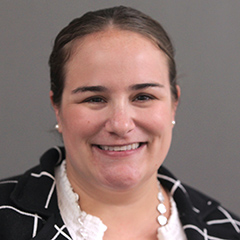Project Overview
To develop and implement analytic tools for quality monitoring and performance improvement and processes that monitor the effectiveness of Transitions to Community Living services, meeting the goals of North Carolina’s Olmstead Settlement Agreement.
North Carolina sought a partner like Mathematica with expertise in Medicaid long-term services and supports to integrate and transform many diverse data sources into a user-friendly format and drive quality assurance and performance improvement.
North Carolina Department of Health and Human Services

Mathematica developed and implemented a performance monitoring system that tracks whether adults in North Carolina with serious mental illness can access services and supports in the best and most integrated setting for their needs.
High-quality, person-centered long-term services and supports are foundational to Medicaid system performance, and necessary to meet state obligations under the Americans with Disabilities Act and the U.S. Supreme Court's 1999 Olmstead Decision. North Carolina’s Transitions to Community Living (TCL) provides long-term housing, community-based services, and supported employment. It promotes community integration for adults living with serious mental illness or serious and persistent mental illness.
North Carolina’s Department of Health and Human Services engaged Mathematica to develop and implement a data-driven quality assurance and performance improvement system for TCL. We began this work by gathering and documenting information about current TCL measurement and reporting, soliciting stakeholder input, and applying frameworks for national quality measures to develop an initial set of performance measures for the TCL system.
In turn, the TCL data analytics platform integrates and transforms information—including Medicaid, state mental health, housing, employment, experience-of-care, and quality-of-life data—from numerous sources, for display in the TCL data dashboard. The dashboard is designed to show measure results and trends to clearly identify areas of success and opportunities for improvement, and to help the state with decision making.
Related Staff

Benjamin Fischer
Senior Managing Consultant; Co-Lead, Health Human-Centered Design Practice
View Bio PageEfficiency Meets Impact.
That's Progress Together.
Mathematica delivers evidence-based solutions to optimize programs and policies for effectiveness, efficiency, and impact. Learn more about becoming a client or partner.
Work With Us



